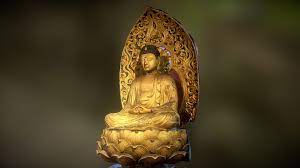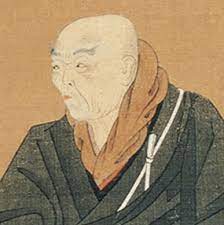
阿弥陀仏に救いを求める浄土真宗は、キリスト教に似ている?――バイリンガルで、
どうぞ。
Is Jodo-Shinshu similar to Christianity in terms of seeking to be saved
by Amida Buddha?――more to come both in English and in Japanese.
Although there are fundamental differences between the teachings of Jodo-Shinshu
and Christianity, many, at first glance, find some similarities between the two traditions.
In my view, the similarities are found in the areas of 1) human nature, 2) the ultimate,
and 3) the source of spiritual resolution.
浄土真宗とキリスト教の教えには基本的な違いがあるにもかかわらず、一見、二つの
伝統の間に類似性があると多くの人々が指摘しています。類似性は、(1) 人間性、
(2) 絶対者、(3) 宗教的救いの根源といった範疇で見受けられると私は思います。
With regard to human nature, Christians regard humans as deeply sinful
while Jodo-Shinshu regard humans as foolish (bombu). Both religions see human nature
as self-centered, and assert that people are unable to change their nature
fundamentally through their own efforts.
人間性について言えば、キリスト教は人間を非常に「罪深い者」(sinful person) である
と見なしていますが、浄土真宗では人間を「愚か者」(凡夫) (foolish person) である
と考えます。両宗教とも人間の性質を自己中心的であると見なし、自らの努力だけでは
自分たちの性質を根本的には変えられないとしています。
The ultimate in Christianity is God, while it is Amida Buddha in Jodo-Shinshu.
Both God and Amida represent spiritual power that lies outside our human capabilities.
Both also have qualities that are diametrically opposed to the “sinful” Christians and
“foolish” Jodo-Shinshu Buddhists.
キリスト教における究極的な根源とは神ですが、浄土真宗では阿弥陀仏です。神も
阿弥陀仏も人間の能力を超えた宗教的な力を意味しています。そして、両者とも
互いに、キリスト教で言う罪深い人間や浄土真宗で言う愚かな人間とは正反対の性質を
持つものです。
Both teachings find humans to be incapable of realizing the spiritual goal
by pulling themselves up by their own bootstraps. Because of our sinful and
foolish nature respectively, nothing we do can liberate us.
二つの宗教とも自分の力で自分自身を向上させ、宗教的目標を達成することは人間の
性質からして不可能であると教えています。各々、罪深いから、愚かだからという理由
で、自己を解放するために人間ができることは、何一つないとしているのです。
So, no works or disciplines are required. Instead, our spiritual resolution relies on
power beyond the self: God’s grace in Christianity and the Other Power in Jodo-Shinshu.
したがって、いかなる行為も訓練も必要ではなく、代わりに我々の宗教的救いには、
自己を超えた力に頼ることになります。すなわちキリスト教の場合には神の恩寵で
あり、浄土真宗の場合には他力です。
■The similarities between Jodo-Shinshu and Christianity are only superficial.
I believe if they looked deeper, they would find that these Jodo-Shinshu teachings are
rooted in basic Buddhism. So, they differ in subtle yet fundamental ways
from the similar teachings in Christian thought.
■浄土真宗とキリスト教の類似点は、表面的なことにすぎない。
よく見ると、浄土真宗の教義は仏教の基本に根ざしていることに気づくはずです。
したがってキリスト教と類似した思想とは、微妙に、それでいて根本的に違いが
あるのです。
With regard to human imperfection, sin implies a failure to keep one’s promise
with God by not living in accordance with his will. The focus is on one’s relationship
to God. In contrast, foolishness (bombu) in Jodo-Shinshu stems from being awakened
by the Buddha’s wisdom. The focus is the realization of one’s inability
to overcome one’s self-centered attachments through one’s own power.
So, they differ in the reasons why humans are believed to be imperfect.
人間の不完全さについて言えば、自分が神の意志に従って生きることができない
ために、神との契約を守れぬことをキリスト教では罪と考えます。つまり焦点は神との
関係にあります。それに比べ、浄土真宗の凡夫とは、仏の智慧によってめざめ
させられた自己認識なのです。焦点は、自分の力で自己中心的な執着を克服できない
と、めざめることにあるのです。つまりキリスト教と浄土真宗では、人間の不完全性の
理由が異なっているのです。
Secondly, there is a definite difference in the way we think of the ultimate.
God is a supernatural being who is the Maker, Lord and Father. Amida has none of
the same characteristics, but is the “spiritual power” that we experience
as understanding and caring in our lives.
第二に、絶対者についての考え方に明確な違いがあります。キリスト教の神は、創造神
であり、君主であり、父という超自然的存在です。しかし、阿弥陀仏にはそうした性格
はなく、私たちが日々の生活の中でいただく智慧と慈悲として体験する「宗教的な力」
なのです。
Thirdly, there is a subtle difference in the way we relate to the transcendent spiritual
source. Christians maintain an ongoing personal relationship with God who exists
independently from humans and the world. This relationship is maintained largely
through prayers, sacraments and contemplation.
第三に、絶対者への関わり方に微妙な違いがあります。キリスト教では、人間や世界
から完全に独立して存在する神との関係を継続的に維持します。この関係は主への
祈り、儀式、瞑想によって維持されるのです。
In contrast, Jodo-Shinshu Buddhists do not regard Amida as a divine being
with whom they maintain an ongoing relationship. They realize their essential oneness
with Amida in the oral recitation, for Amida is none other than
the Name Namo Amida Butsu.
これに対し浄土真宗では、阿弥陀仏を「継続的関係を維持すべき神の如き存在」とは
考えません。信徒は念仏の中に、阿弥陀仏との本質的同一性を自覚するのです。
なぜなら阿弥陀仏とは「南無阿弥陀仏」以外の何物でもないからです。
My second anthology is published now.
Please order it from Amazon if you are interested in.
私の2番目の詩集が、現在、出版されています。
興味のある方は、アマゾンでご購入をお願いいたします。
■プライバシー・ポリシー
当ブログは、Amazon.co.jpを宣伝しリンクすることによってサイトが紹介料を獲得
できる手段を提供することを目的に設定されたアフィリエイト宣伝プログラムである、
Amazonアソシエイト・プログラムの参加者です。このプログラムにおいて、
第三者がコンテンツおよび宣伝を提供し、ユーザーからの情報を収集し、訪問者の
ブラウザーにクッキーを設定することがあります。プログラムにおいて情報の
扱いについてはAmazon.co.jpプライバシー規約をご確認ください。
Amazon.co.jp ヘルプ: Amazon.co.jp プライバシー規約








